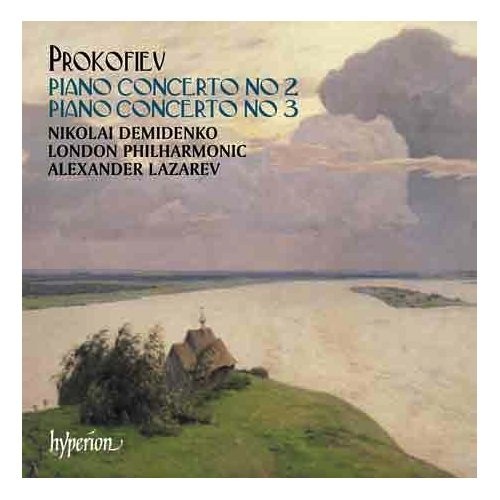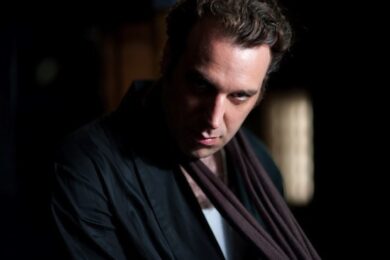4. ProkofievPiano Concertos 2 and 3

Up until that time, classical music represented to me, like for many people, pretty poncy stuff – Mozart, Beethoven, all that just couldn’t speak to me. In my devouring-music phase of being a teenager, Prokofiev essentially was the first thing that was complicated enough and reminded me of what I liked in jazz music and had the sort of dramatic sweep of what I liked in pop music.
I really know them note-for-note, I still listen to them a lot, especially those performances, to the point where, if I hear a different performance of those concertos, it’s totally shocking and reminds me of the whole idea of what a classical performance is. I somehow got hooked on that one – I bought them on iTunes recently, and even seeing the cover there brought back a lot of memories, I mean I really wore that one out! He pulled off this magic trick, where he made something very subversive and avantgarde, and, at the same time, very listenable – that’s a really hard thing to quantify. He just wanted to connect more with people than the other composers did. He’s basically the more hip version of Tchaikovsky, who’s a very entertainment, catchy-oriented composer, who had a lot of hits, so to speak, but of course a little bit cheesy to our ears now, and we know those songs so well.
I think sometimes what separates the artists I like from the very similar artists is that one of them needs to connect with the audience and will just go that bit further to think from the perspective of a non-specialised listener. And it’s something I try to do with my music as well – I’m a real student of music and harmony and what can be done with it, but that’s all overwritten by the fact that I need to try to please people to at least show them something that they wanted that they didn’t know they wanted. That’s [what separates] the true entertainer from the artist, who’s just happy to please himself.


